When it comes to pure gaming power, two of the best systems the world has ever known are the Xbox Series X and PlayStation 5. Both platforms deliver brilliant 4K HDR performance, on top of terrific internal storage, great designs, and web-connected features.
While these systems are made by two different companies, the consoles have many things in common. But they also have a few key differences, and we’re going to cover them all in this side-by-side comparison of the Series X and PS5. We’re only talking about the base units here, meaning the current Series X and slim PS5 models, but you can check out our comparison of the PS5 vs PS5 Pro here if you’re curious about how those two stack up.
Specs
| Xbox Series X |
PS5 | |
| Dimensions | 15.1 x 15.1 x 30.1 cm | 39cm x 26 x 10.4 cm |
| Weight | 9.8 pounds | 10.54 pounds |
| Color | Black | Black and white |
| CPU | 3.8GHz Custom Zen 2 | 3.5GHz Custom Zen 2 |
| GPU | 12 TFLOPS 1.825GHz RDNA 2 | 10.28 TFLOPS 2.23GHz |
| Memory | GDDR6, 16GB | GDDR6, 16GB |
| Memory bandwidth | 10GB at 560GBps, 6GB at 336GBps | 448GBps |
| Storage | 1TB custom NVME SSD | 825GB SSD |
| Optical drive | 4K Blu-ray | Yes |
| 4K | Yes | Yes |
| HDR | Yes | Yes |
| Ports | HDMI x 2, USB 3.2 x 2, Ethernet, storage, power | Includes USB and NVME slot |
| Online subscription | Xbox Live Gold/Game Pass | PS Plus |
| Price | $500 | Digital: $450
Disc: $500 |
| Digital Trends review | 3.5/5 | 4.5/5 |
On the PS5 side, the console uses AMD chips across the board. This includes an eight-core CPU running on a modified version of the Ryzen line. This CPU uses 7nm Zen 2 microarchitecture. Its CPU is, on paper, slightly less powerful than the Xbox Series X CPU.
The PS5’s GPU is also from AMD, based on the Radeon Navi line, and it supports the resource-intensive process known as ray tracing. This information comes from an interview that the lead system architect, Mark Cerny, had with Wired. The GPU runs at 10.28 TFLOPS with 2.23GHz, which puts it in relative competition with the Xbox Series X GPU. The PS5 also comes with a 4K Blu-ray player, placing it in line with the Xbox One S and Xbox One X. The discs have a capacity of 100GB — double that of the previous generation.
The Xbox Series X features 12 TFLOPS of power and up to eight times more graphical performance than the Xbox One, and twice as much as the Xbox One X. The Xbox Series X has 16GB of GDDR6 RAM, while the Xbox One X uses 12GB of GDDR5 RAM. Even a small boost to this is sufficient for modern games. The Series X supports features like a variable refresh rate, variable rate shading technology, and a low-latency mode, allowing for better responses out of your games.
There’s a less expensive console in Microsoft’s lineup, though: Xbox Series S. At $299, the console isn’t nearly as powerful as its more expensive sibling, targeting 1440p gaming rather than 4K. Still, it offers similar functionality as the Series X, minus a disc drive and some horsepower. It’s also important to note that the Xbox Series S system is typically easier to find across various retailers. There is also a 2TB version of the Series X that has all the same internals but with double the storage for $600
The PS5 has a digital-only option as well.
Storage
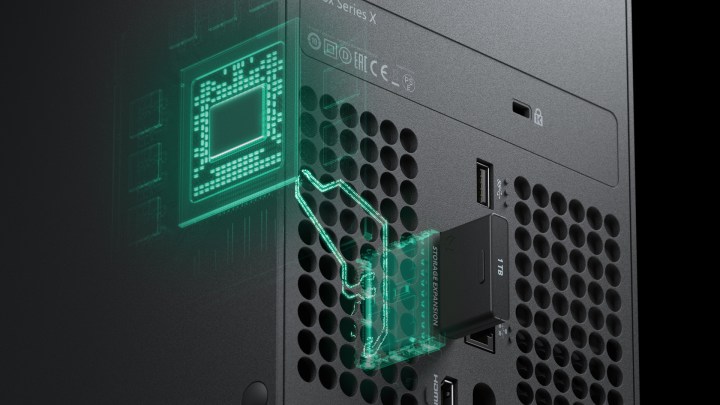
Sony finally moved away from hard drives in favor of solid-state drives for the PS5. The SSD in question is a superfast 825GB model, with a slot for expanding storage via NVME.
The PS5’s SSD also allows it to segment how you install content. If you only want to install the campaign in the latest Call of Duty game, for instance, you can do that and get to playing it much more quickly. You can also load directly into certain modes from the dashboard, hypothetically allowing you to jump right into a multiplayer match with a friend instead of having to navigate all the menus first. This is implemented on a game-by-game basis, of course, but it’s still neat that it’s available at all.
You are even able to see what rewards you can get for completing possible activities right from the dashboard, with game servers providing this information. Following an update shortly after launch, Sony allowed for PS5 games to be stored on an external drive, giving players a convenient way to make the most out of their storage. As it stands, the stock 825GB of onboard memory might not be enough, especially for those massive install sizes. You can also store PS4 games on an external drive, meaning you won’t run out of memory as quickly.
The Xbox Series X also makes use of a solid-state drive. It is a custom 1TB SSD using NVME technology, and it supports proprietary expansion cards. Both consoles support external HDDs as well, but they are not fast enough to run next-generation games. It’s recommended to wait to purchase external hard drives in the next couple of years so they’re up to par with the requirements of current games. You are able to store Xbox Series X games on a specific external device, giving you a wider array of games to choose from, though be prepared to spend a pretty penny since the official version costs around $220.
Design
Xbox Series X
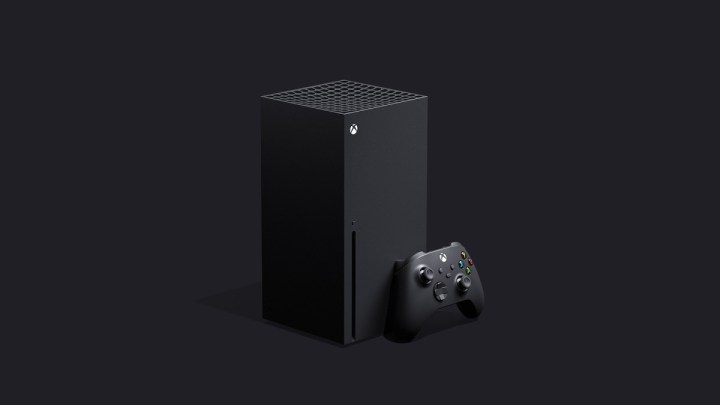
The Xbox Series X resembles a tall PC tower. It is substantially larger than the Xbox One X and Xbox One S systems, but still features a power button and disc drive on the front. The top of the system caves slightly inward and is made up entirely of ventilation holes for better airflow. It can also be positioned horizontally to fit into entertainment centers better.
PS5 (standard and digital editions)

As for the PS5, it looks quite unusual, with a combination of black and white colors and curves on each side. In much of the promotional material, the system is shown standing up vertically, but you are able to place it on its side. The system doesn’t look a whole lot like the PS4 — or any previous PlayStation system, for that matter. There is also a diskless version that is slightly smaller and less expensive — but is mostly identical to the disc-based version.
You are able to swap out the white panels on the side for a variety of colors including blue, purple, black, red, and pink. Faceplates are a bit pricey, however, at $55 each, which is almost the price of a new game.
Controller
DualSense
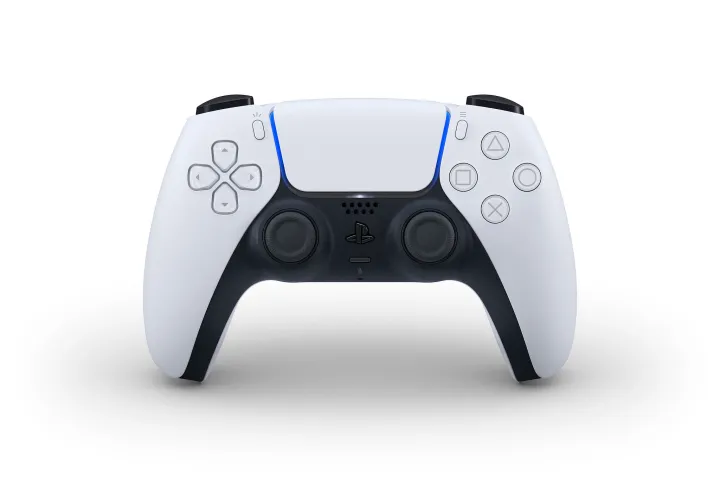
The PS5‘s official controller is called the DualSense — PlayStation dropped the DualShock moniker altogether. The DualSense ditches traditional rumble motors in favor of haptic feedback, which makes for a more immersive experience. This new technology allows for more specific responses in games, such as resistance in the analog sticks when you are walking on a tough surface. The triggers also offer variable resistance, mimicking the action being performed, such as pulling back the string of a bow.
The battery packed into the controller includes a higher capacity than its predecessor. This was one of the biggest drawbacks of the DualShock 4 in the previous generation. The controller itself resembles the console, with a combination of black and white coloring, but you can also purchase a variety of colors just like the faceplates. It’s a bit bulkier than the DualShock 4, which may or may not be a good thing. The DualSense incorporates the same basic button layout as previous controllers, but with a few minor changes. Gone is the Share button. Instead, Sony opted to include a Create button to take its place, and it functions the same, with added features. It also includes a built-in mic and headphone jack.
Those looking for a premium PS5 controller should look no further than the DualSense Edge. This gamepad allows you to swap out the thumbsticks and paddles, with an emphasis on backend button customization.
Another major feature worth mentioning is PlayStation VR2, the new virtual reality headset from Sony. This add-on is touted as next-gen VR and offers a more streamlined setup, with much more power. PS VR2 launches on February 22, 2023. It’s not a necessary addition, but one worth considering when choosing between PS5 and Xbox Series X.
Xbox Series X controller

The Xbox Series X controller isn’t drastically different from the Xbox One controller. It does have a new Share button, which works much like the way it does on the DualShock 4, as well as an updated directional pad based on the Xbox One Elite 2 controller’s pad.
The controller is cross-generation compatible with Xbox One, as are the Xbox One’s accessories. This means any controllers that players already own for Xbox One will work on the new system. It seems Microsoft is going in a totally different direction from Sony when it comes to next-generation controllers. Microsoft is showing that, once again, consumer-friendly decisions like these are at the forefront. The new Xbox Series X controller also features a USB-C charge port instead of the Micro USB found on previous versions.
Backward compatibility

Unlike the PS4, Sony’s newest console is backward compatible — at least in some capacity. The PS5 is able to play PS4 games in addition to its own library of titles as well as PlayStation VR games. It is also backward compatible with the PlayStation VR headset supported by the PS4, and it will support PS VR2.
As confirmed in a PlayStation Blog post, most of your PS4 games do work on PS5. In fact, only a small handful of games are incompatible.
The list of non-backward-compatible games is as follows:
- Afro Samurai 2: Revenge of Kuma — Volume 1
- Just Deal With It!
- Robinson: The Journey
- We Sing
- Hitman Go: Definitive Edition
- Shadwen
It’s unclear why these games in particular aren’t backward compatible with the PS5, but you can rest easy knowing that the overwhelming majority of your PS4 games work on the new machine. Unfortunately, backward compatibility stops at PS4 games. Sony might continue to release PS2 ports as it has with PS4, but in terms of “true” backward compatibility beyond that, it seems unlikely.
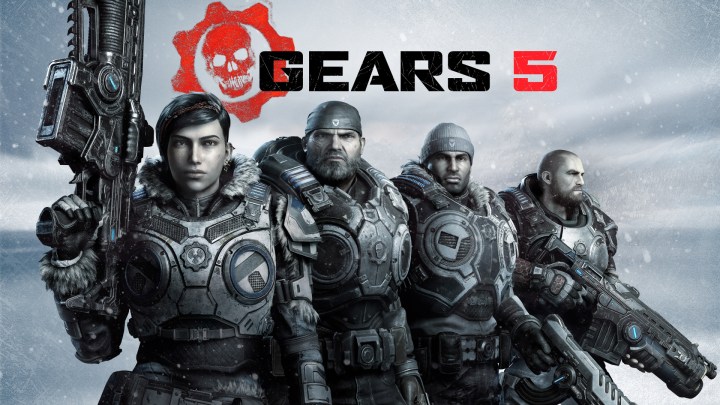
As for Xbox, Microsoft confirmed during E3 2019 that Xbox Series X supports most previous-generation Xbox games, similar to the way Xbox One works. This means you’re able to play eligible original Xbox, Xbox 360, Xbox One, and Xbox Series X|S games all on the new machine. That’s a huge win for game preservation. While the Xbox Series X might not have the exclusive game lineup the PS5 has, Microsoft should be praised for its consumer-friendly approach to backward compatibility.
Game lineup

Sony’s library of games on PS5 is impressive and includes Marvel’s Spider-Man 2, Final Fantasy 7: Rebirth, Ratchet & Clank: Rift Apart, Astro Bot, and The Last of Us Part II, to name a few. These are just some of the exclusives available on the platform right now, with more in the pipeline, including Ghost of Yotei, Death Stranding 2, and Marathon.
But these exclusives aren’t the only reasons to get a PS5, as the system boasts a wide variety of third-party titles, including Star Wars: Jedi Survivor, Call of Duty: Black Ops 6, Diablo IV, and Dragon Age: The Veilguard.
Ultimately, there are plenty of current and upcoming PS5 games that might interest you, so be sure to keep that in mind when selecting between PS5 and Xbox Series X.

As for the Xbox Series X, there aren’t as many meaningful exclusives just yet, but Microsoft is getting there. Discussing exclusives gets tricky since most games on the platform are backward compatible with the Xbox One. Of course, the Xbox Series X versions offer improved performance, but they’re still playable on older hardware. Currently, the system offers Halo Infinite, Hellblade 2, Hi-Fi Rush, and Grounded, among others. Microsoft has big plans for the future, with exclusive games such as Fable, Avowed, and Perfect Dark all currently in the works.
Of course, the Xbox Series X also supports a slew of third-party games, giving players more options across the board. Remember, many of these third-party games are also available on PS5, so your decision will ultimately come down to minor preferences such as UI, controller, and which console your friends prefer.
Microsoft’s system also has a feature called Smart Delivery. Because of Microsoft’s approach of offering no true exclusives for at least a year, all players who buy the Xbox One version or Xbox Series X version of a first-party Microsoft game will get the other version for free, without having to do anything to make sure they install the correct one. Xbox Game Pass also continues on Xbox Series X, and previous Game Pass titles are still free on the newer system.
Online services
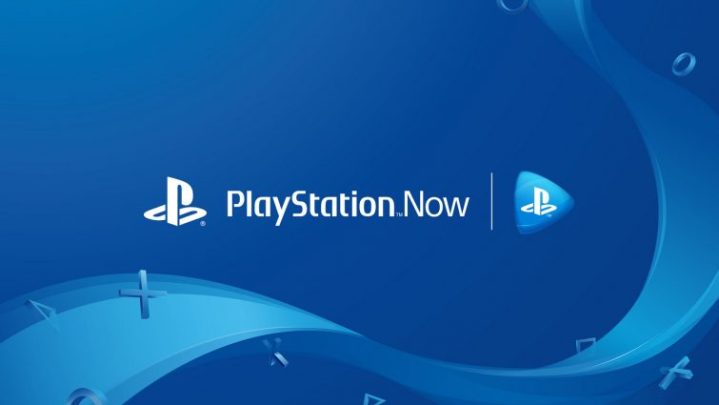
Subscriptions to Xbox Live Gold and PlayStation Plus were both necessary for playing the majority of online games when the Xbox One and PS4 launched in 2013, and this remains the case with the current generation of systems.
Previously, Sony offered PlayStation Plus and PlayStation Now as two different services, but has since folded them into one. The all-new, streamlined version of PlayStation Plus gives players access to online play, with three different tiers that each feature different games for a monthly fee — sort of like Netflix.
The PlayStation Plus Essential tier, which costs $10 per month, allows you to play online and grants you multiple “free” games each month. This is essentially the same thing as PS Plus during the PS4 era. There’s also PlayStation Plus Extra for $15 per month, which includes access to the benefits from the previous tier, as well as a catalog of over 400 PS4 and PS5 games. Finally, PlayStation Plus Premium costs $18 per month, and includes the benefits of the first two tiers, plus a slew of older games from the PS1, PS2, and PS3 eras.
Overall, these subscription services are nice to have, but you should look into the perks of each before deciding which is right for you.
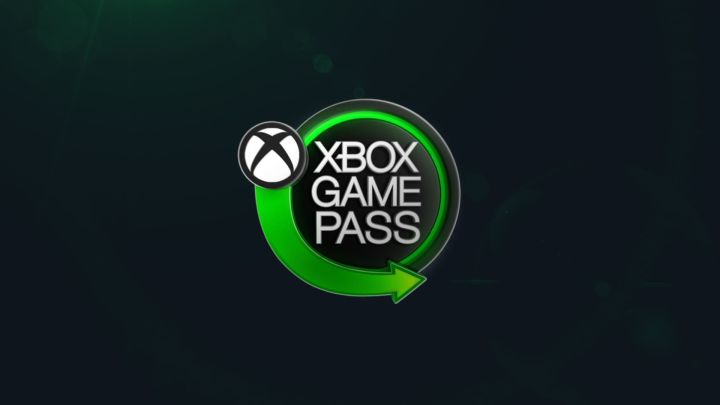
Microsoft has gone all-in on game streaming as well with its Xbox Cloud Gaming service. This game-streaming service allows you to play games on everything from your Xbox to a mobile phone. You can stream games from your own console to a mobile device for free, and all your purchased games on Xbox systems are eligible.
And of course, one of the main reasons to be an Xbox player is to enjoy Xbox Game Pass, a service that offers a hefty library of games, including first-party Microsoft titles. This means you’ll have access to all of Microsoft’s excellent exclusives like Halo, Forza, Sea of Thieves, and whatever else the company has in the works — all at no additional cost on day one (as long as you have either the PC or Ultimate tier). It’s a truly revolutionary way to go about getting games into the hands of its community. You can purchase Xbox Game Pass for $10 per month for Core, $12 for PC, $15 for Standard, or $20 for Ultimate.
The service offers other perks, like bundling in Xbox Live Gold with Xbox Game Pass Ultimate, which also includes EA Play, Electronic Arts’ new game subscription service. Remember, Xbox Live Gold is the service that enables online play. Xbox Game Pass Ultimate is $20 per month and features a ton of extra perks. In short, you can get an Xbox Series X with Xbox Game Pass Ultimate and have access to hundreds of games without having to actually buy them. Plus, Game Pass works on PC and other devices, meaning you can play these games nearly anywhere. What Microsoft lacks in exclusive launch games, it makes up for with consumer-friendly services like Game Pass.
Conclusion
Both the PS5 and Xbox Series X have enough features to justify buying one, but they also have downsides that you should be aware of. In terms of price, the least expensive way to get the best-looking games is by purchasing the Digital Edition PS5 for $399, though these might still be difficult to find. If you’re someone who has loved Sony’s excellent output of first-party exclusives, the PS5 should be your go-to.
If those games don’t appeal to you, and if you’re more of a fan of ubiquity and easy-to-use services, then the Xbox Series X might be the choice for you. Sure, the system doesn’t have the most robust first-party lineup just yet, but it does offer an easy way to play nearly every one of your Xbox games, from the original to the Xbox One — all in one place. Game Pass is a revolutionary way to get your hands on an ever-growing library of games, and eventually, Microsoft’s first-party studios will deliver highly anticipated titles, Perfect Dark reboot via The Initiative.
Ultimately, right now is a great time to love video games — whichever system you choose.




